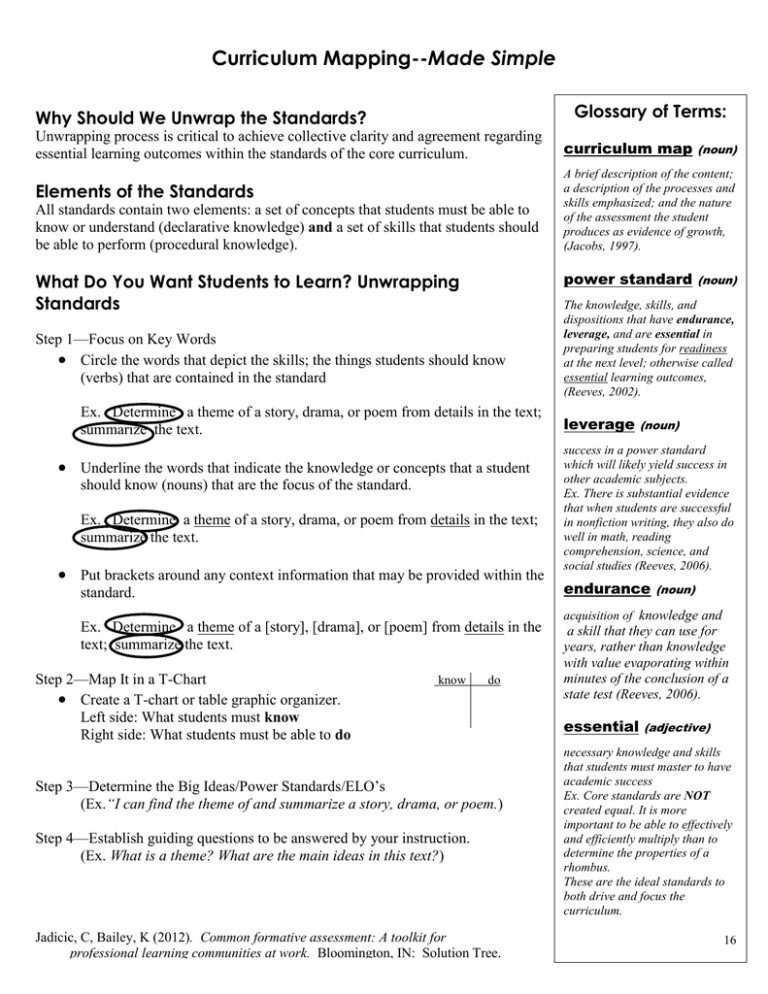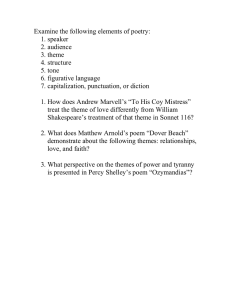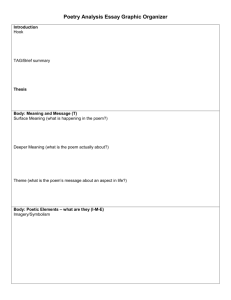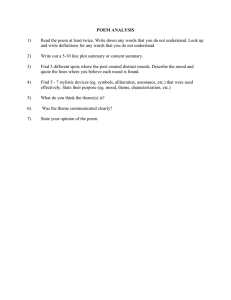Made Simple Glossary of Terms: Why Should We Unwrap the Standards?
advertisement

Curriculum Mapping--Made Simple Glossary of Terms: Why Should We Unwrap the Standards? Unwrapping process is critical to achieve collective clarity and agreement regarding essential learning outcomes within the standards of the core curriculum. Elements of the Standards All standards contain two elements: a set of concepts that students must be able to know or understand (declarative knowledge) and a set of skills that students should be able to perform (procedural knowledge). Step 1—Focus on Key Words Circle the words that depict the skills; the things students should know (verbs) that are contained in the standard Ex. Determine a theme of a story, drama, or poem from details in the text; summarize the text. Underline the words that indicate the knowledge or concepts that a student should know (nouns) that are the focus of the standard. Ex. Determine a theme of a story, drama, or poem from details in the text; summarize the text. Put brackets around any context information that may be provided within the standard. Ex. Determine a theme of a [story], [drama], or [poem] from details in the text; summarize the text. know do Step 3—Determine the Big Ideas/Power Standards/ELO’s (Ex.“I can find the theme of and summarize a story, drama, or poem.) Step 4—Establish guiding questions to be answered by your instruction. (Ex. What is a theme? What are the main ideas in this text?) Jadicic, C, Bailey, K (2012). Common formative assessment: A toolkit for professional learning communities at work. Bloomington, IN: Solution Tree. (noun) A brief description of the content; a description of the processes and skills emphasized; and the nature of the assessment the student produces as evidence of growth, (Jacobs, 1997). power standard What Do You Want Students to Learn? Unwrapping Standards Step 2—Map It in a T-Chart Create a T-chart or table graphic organizer. Left side: What students must know Right side: What students must be able to do curriculum map (noun) The knowledge, skills, and dispositions that have endurance, leverage, and are essential in preparing students for readiness at the next level; otherwise called essential learning outcomes, (Reeves, 2002). leverage (noun) success in a power standard which will likely yield success in other academic subjects. Ex. There is substantial evidence that when students are successful in nonfiction writing, they also do well in math, reading comprehension, science, and social studies (Reeves, 2006). endurance (noun) acquisition of knowledge and a skill that they can use for years, rather than knowledge with value evaporating within minutes of the conclusion of a state test (Reeves, 2006). essential (adjective) necessary knowledge and skills that students must master to have academic success Ex. Core standards are NOT created equal. It is more important to be able to effectively and efficiently multiply than to determine the properties of a rhombus. These are the ideal standards to both drive and focus the curriculum. 16


